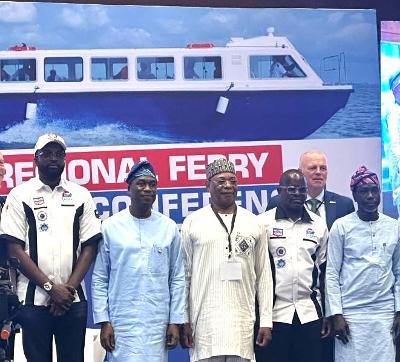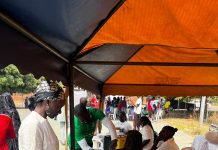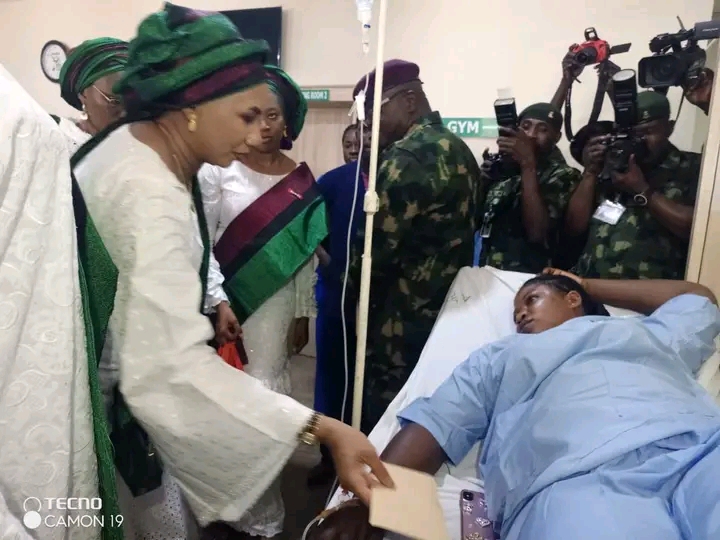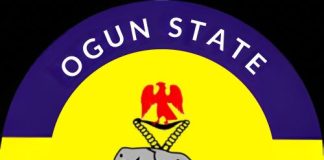The Lagos State Government has extended an invitation to interested stakeholders to invest in the state’s waterways, stating that with over 20 water terminals and plans for more jetties in the pipeline, the State offers a viable and vibrant market for private sector participation.
The Governor, Mr. Babajide Olusola Sanwo-Olu, made this call today at the 2025 Regional Ferry Safety Conference, themed: “Charity Safer Waters; Advancing Ferry Safety through Innovation, Collaboration, and Integrated Transport Solutions,” held at the Lagos Continental Hotel, Victoria Island, Lagos.
Sanwo-Olu, who spoke through the Deputy Governor, Dr. Kadri Obafemi Hamzat, stated that the collaboration would build a future where waterways in the State are not only safe but also a model of efficiency and sustainability.
According to him, “I extend an invitation to interested stakeholders to come and invest in our waterways. With over 20 water terminals and plans for more jetties in the pipeline, we offer a viable and vibrant market for private sector participation, provided safety standards are met. Together, we can build a future where our waterways are not only safe but are also a model of efficiency and sustainability.”
The Governor added that the state government has collaborated with the relevant authorities for the ‘Coastal Resilience Initiative’, supported by WaterAid Nigeria and the UK’s Blue Planet Fund, which exemplifies how public-private partnerships can address coastal risks and promote sustainable water transport.
Sanwo-Olu said the heart of the state’s approach to ferry safety is Innovation, elucidating that his administration is exploring the future of water transportation through initiatives like the Omi-Eko project. “In the coming years, we aim to introduce electric ferries to reduce carbon emissions and align with global sustainability goals”, he asserted.
He stated further that his administration has made significant strides in enhancing ferry safety, noting that since the inception of the Lagos State Waterways Authority (LASWA) in 2008, it has been instrumental in regulating and monitoring water transportation, ensuring compliance with safety standards, and fostering an enabling environment for operators.
Through LASWA’s efforts, the state government has prioritized mandatory usage of life jackets, regular vessel inspections, and comprehensive training for captains and deckhands in collaboration with partners like Yamaha.
Besides, “Our control room, equipped with cutting-edge technology, provides real-time data to inform safety decisions, while our partnerships with federal agencies like the National Inland Waterways Authority (NIWA) and the Nigeria Maritime Administration and Safety Agency (NIMASA) have strengthened our safety framework,” he said.
In his address, Commissioner for Transportation, Mr. Oluwaseun Osiyemi, stated that collaboration, innovation, and vigilance play a vital role in the journey of maritime safety, noting that it is essential for Nigeria to recognize that maritime safety is not a destination but rather a continuous journey.
“Our gathering today, comprising government agencies, private operators, industry regulators, international partners, and technical experts, conveys a powerful message about the importance of collaboration. We must share knowledge, harmonize standards, build capacity, and, above all, act with unity and urgency,” stated the commissioner.
Osiyemi stated that Ferry incidents anywhere in the African region resonate with all, underscoring that the region’s ambition must be to ensure that every passenger, whether in Lagos, Lomé, Accra, or Dakar, boards a ferry with confidence, secure in the knowledge that robust systems and a safety-first culture underlie their journey.
He noted that with the rapid population growth in coastal cities across Africa, ferry services have become not just an option but a necessity, citing that Lagos has experienced firsthand transformation in water transportation under the leadership of Governor Babajide Olusola Sanwo-Olu. LASWA has redefined the possibilities on Lagos’ inland waterways, through enhanced investments in terminals and jetties, among others.
In his remarks, Secretary General, Maritime Organization of West and Central Africa (MOWCA), Dr. Paul Adalikwu, commended the Lagos State Government and the Lagos State Water Authority for hosting the conference, adding that the idea aimed to gather stakeholders in Lagos to understudy the state model.
Dr. Adalikwu noted that the idea aligns with the emerging global best practices of waterways and explores areas of improvement that would make ferry services safer and more attractive for human use.
Earlier in his welcome address, the Managing Director, Lagos State Water Authority, Mr. Damilola Emmanuel, said that the event aims to harmonize policies and establish robust regional frameworks that ensure safer and more efficient cross-border ferry operations.
He noted that the Lagos State Government is committed to elevating technical and design standards, ensuring its infrastructure is not only adequate but also ready to meet the needs of the future, stressing that the seek to position ferry transport as a vital component of urban and regional mobility, alleviating congestion, enhancing connectivity, and promoting environmentally friendly transportation options.
According to the Managing Director, “Lagos, with its energy and ambition, is more than an ideal host; it embodies a thriving environment where forward-thinking policymaking, operational excellence, and community involvement intersect around our waterways. This city demonstrates that safe, scalable, and sustainable ferry transport is attainable when public institutions, private operators, and local communities collaborate in harmony.”
He therefore called on stakeholders to come together on a mission to forge a safer, more resilient future for ferry transport across Africa’s magnificent waterways and coastal regions.














